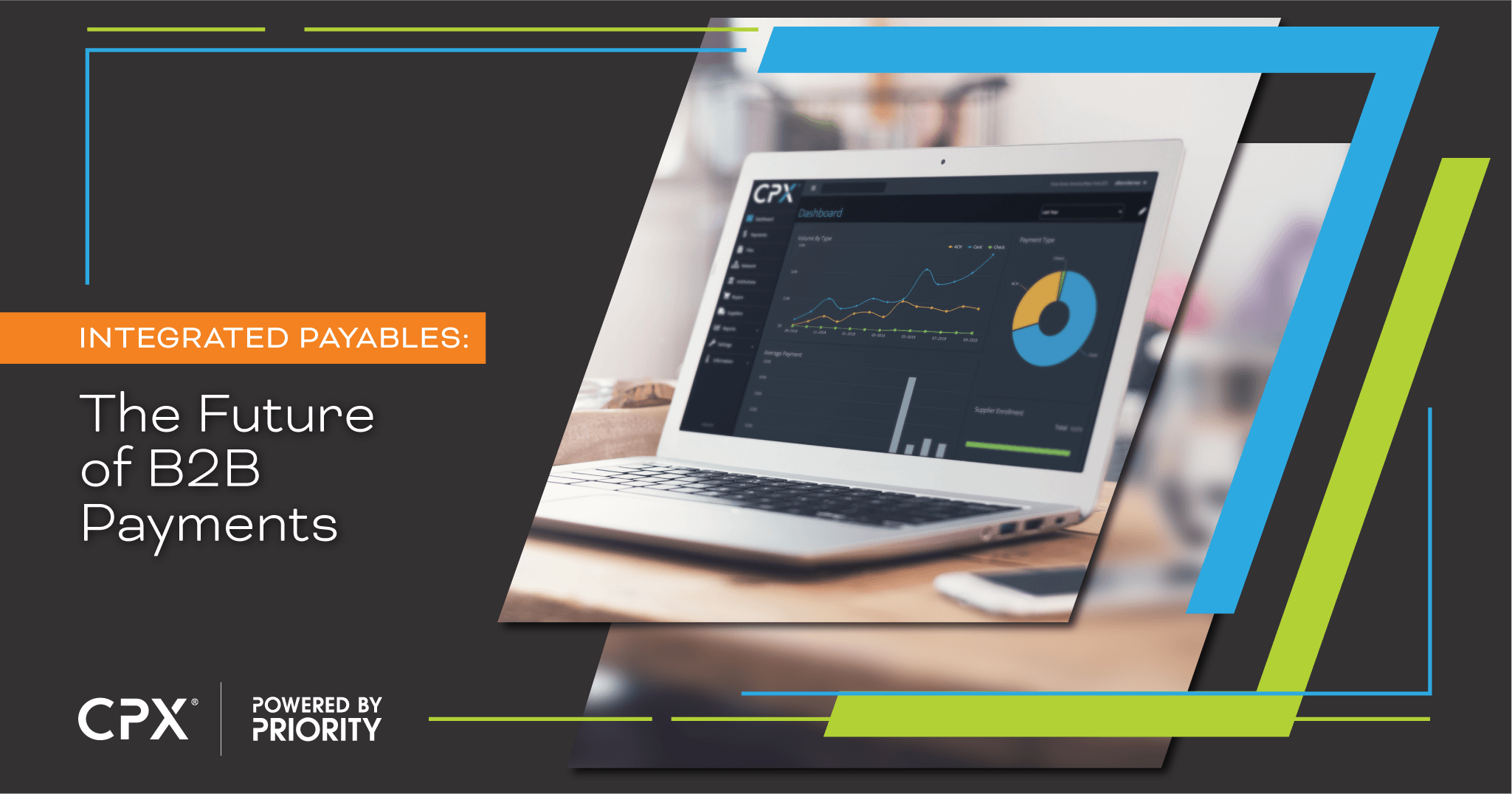
Why Integrated Payables are the Future of B2B Payments

The “digital first” world has arrived—and there’s no turning back. From healthcare and banking to retail and construction, a huge range of industries is being transformed by digital technologies, like integrated payables. While B2B payments have lagged behind consumer payments in digital adoption, they are projected to see significant growth in the years ahead.
In fact, Goldman Sachs Research predicted in a report a few years ago that a new generation of B2B payment and software solutions “is emerging which promises to cut costs by up to 75% and unleash $1.5 trillion in small business productivity.”
Integrated payables are just one way that B2B payments are being technologically transformed. They are an increasingly sought-after solution as companies look to leverage digital technologies and modernize their payment processes. How they generally work: The integrated payables provider receives a single file of suppliers that need to be paid by a company and then engages each of those vendors individually to work out the payment terms and optimal payment method. In essence, the provider will help the company find the best payment arrangement for each vendor and help shift to electronic payment methods.
The integrated payables solution also provides a platform that helps companies better manage and track their payables—streamlining the process with easy-to-access data and reports. It basically takes the heavy lift of managing and coordinating accounts payable off the company’s shoulders, allowing the accounting team to focus on more critical, higher-value activities.
Here are four key ways integrated payables address the needs of today’s companies—large and small—and are becoming a game-changer for how they manage their accounts payable:
1. Electronic migration made easy
As companies look to move toward offering digital payments, integrated payable solutions allow them to do so without needing to invest in new IT infrastructure or adopt new technologies. Today’s end-to-end solution platform provides it. The integrated payables provider provides the technological backbone so that companies can offer multiple payment options to their vendors to optimize the payment process for each one.
This means there’s no disruption to the current workflow.
2. Integration with other business software
Companies today seek solutions that allow them to connect their key business software programs together to increase information sharing and overall efficiency.
Integrated payables platforms can integrate directly with your company’s accounting systems and other software to provide a seamless end-to-end payment solution. The best-in-class integrated payables platforms allow a business to leverage its existing enterprise resource planning (ERP) software. This can greatly simplify data sharing between a company and its suppliers by allowing key data such as an invoice number and payment amount to be easily imported instead of needing a team member to manually key the data. And, it allows for integrating all forms of payment, including both electronic and paper-based ones, if necessary.
3. Simplicity with a single, seamless process
Integrated payables provide a turnkey way to pay suppliers, reducing many traditional manual payment processes and allowing companies to greatly streamline their accounts payable processes. Automation of processes, for example, offers a huge upside with the opportunity for a business to reduce complexity. It saves potentially hundreds of hours of time associated with a team performing manual work and eliminates costly mistakes—ultimately, reducing overhead costs.
For example, a company that needs to pay 10,000 suppliers can turn a single instruction file over to the integrated payables service provider, which then arranges payments with each supplier based on their preferred payment method—whether that’s via ACH transfer, wire or virtual card.
4. Data visibility and insight
Companies rely on rich data and insights to make more informed and better business decisions, and payments data offers similar benefits. The best integrated payables solutions provide a business with an interactive portal including a dashboard that provides full visibility into payment status and comprehensive reports to help a company manage all types of payment transactions.
They also allow the company to provide greater payment clarity to their suppliers. For example, when a company makes a partial payment, it can denote on that transaction exactly what that payment is for, even if it’s a partial payment—reducing the odds of vendor confusion and questions.
An Automated, One-Stop Payments Solution
As companies look to expand their electronic B2B payment options, gain efficiencies from streamlining their manual processes and leverage payment data in insightful ways, integrated payables provide them with one end-to-end solution.









